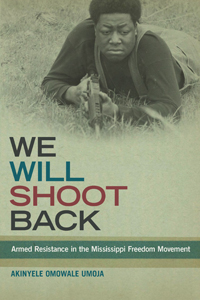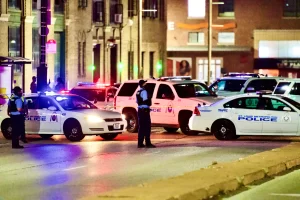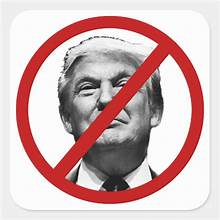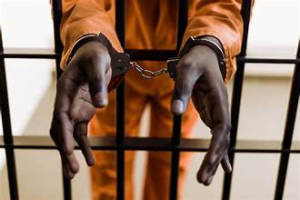A Review of
We Will Shoot Back: Armed Resistance in the Mississippi Freedom Movement
Mississippi: Armed SNCC members abduct white night riders and release them after giving them a warning. A white cop gets knocked unconscious by a black man for slapping a 14-year-old black girl. Armed brothers do a citizens’ arrest when ambushed by the Klan and deliver one of the attackers to his father, the chief of police.
Before you start to romanticize about the good ole days, I should remind you that life in the South for black folks was dangerous and volatile. Any challenge to the traditions and system of white supremacy was met with raw violence. And Mississippi? Well, there’s a poignant reason why Nina Simone penned a song titled, “Mississippi Goddam.” People – mostly black – lost their lives in the freedom struggle as they fought to break down barriers to voting, employment, public accommodations and other aspects of life that were forbidden to African Americans because of racism. This is the backdrop for We Will Shoot Back: Armed Resistance in the Mississippi Freedom Movement by Dr. Akinyele Umoja.
We Will Shoot Back informs us that blacks were not the only ones who had to be in fear of their lives. Racist whites who got between armed black men and women and their struggle for civil and human rights apparently got a lesson in fear.
Though not intended by the author, the book came out in the heat of the gun control debate. In some segments of the black and brown communities, the notion of disarmament is seen as making them vulnerable to attacks by the state or white supremacist groups. Particularly in black communities where the carnage of young men is becoming the norm, We Will Shoot Back could elevate the public discourse on guns in the context of self-defense as opposed to the primary way people should resolve conflicts.
Most of us have heard about the legendary Deacons for Defense. Through exhaustive research and interviews, Umoja introduced us to many other unsung heroes and sheroes (although not surprising the historical documentation was scant on women’s contribution to armed resistance in the south). Men and women like Hartman Turnbow, Rudy Shields, Robert “Fat Daddy” Davis, C.O.Chin, Ora “Miss Dago” Bryant, Luella Hazelwood and many more. Their inspirational stories affirmed that black folks stood with dignity, unflinchingly looking in the face of pure hatred and forged on to re-define their futures.
In We Will Shoot Back, Akinyele Umoja goes further than dispelling a long held myth that black Mississippians were too paralyzed in fear to defend themselves and actively participate in the freedom struggle. And that the omnipotent Klu Klux Klan kept the black community in check. He confronts head-on the stereotype that black southerners were docile, head-hanging, cheek-turning second class citizens.
Umoja takes the reader to the time when black Mississippians were forced to embrace armed resistance for their own survival; blacks faced the realization that their government offered no pretense of protection and could not be relied upon. In many cases, local government officials, along with law enforcement, were part of the same white mobs terrorizing black communities. Umoja chronicles the inextricable and critical role of armed resistance in the advancement of the southern freedom strategy that ultimately led to the passage of the historic Civil Rights Acts of 1964 and 1965. Boycotts and armed resistance were the primary means of effectively organizing for change during this period.
Umoja documents a sophisticated labyrinth of disciplined, well-organized communication networks, safe houses, haven towns and armed residents who, much to the chagrin of local authorities, used local gun laws to their advantage. The special expertise of Vietnam veterans was also tapped.
These armed organizers and citizens did not sell wolf tickets and their threats were not idle ones. Sometimes the brothers were moved to publicly display their arms as a deterrent or to telegraph their sentiments as when Deacon of Defense member, Claude Brown, told white officials that “some peoples fixin’ to be killed…ain’t all of them going to be Black”. Vintage photographs in the book illustrate the armed sentries set up for round-the-clock duties. It was not uncommon for the armed resisters to rough up blacks who dishonored the boycotts.
The protection was extended to courageous residents who dared associate themselves with these forces who were bringing down the walls of white supremacy. When families opened their homes to freedom fighters, it automatically put them in the crosshairs of racist terrorists. Cattle was poisoned, property destroyed, loans denied and a host of other intimidating tactics were used first before escalating to the more life-threatening tactics. Communities were organized not just for their own self defense but to defend any freedom fighter who came into southern towns and cities to support them in their struggle for democracy and equality.
Everyone wasn’t especially excited about this new model of defense. The book highlights an example about how the Deacons of Defense provided protection for the major civil rights groups who vowed to continue James Meredith’s “March against Fear” after he was shot trying to integrate Ole Miss University. Dr. King, Roy Wilkins and Whitney Young were opposed to the Deacons participating in the march. Dr. King conceded to the idea once it was clear the march would maintain its nonviolent character. Wilkins and Young would have none of this and high-tailed it back to New York. The pragmatist that he was, Dr. King went on to make the distinction between “defensive violence and retaliatory violence.”
The armed resistance in the Mississippi Freedom Movement continued under the Black Power era. Its intensity had changed with the two major pieces of civil rights legislation and the decline of the KKK.We Will Shoot Back takes us through the period of Provisional Government of the Republic of New Africa (PGRNA) establishing it boundaries and program and through the demise of the United League. For almost twenty years, blacks understood the ugly period of segregation and terror and organized themselves to live another day and prepare for the next battle in the war against white supremacy and racism.
Whether it’s poetic justice or karma, one circle is complete. A young, lanky attorney with a big afro was part of the Republic of New African delegation who came to organize Mississippi in the early 1970s. He was Chokwe Lumumba. Lumumba was recently sworn in as mayor of Jackson, MS.




